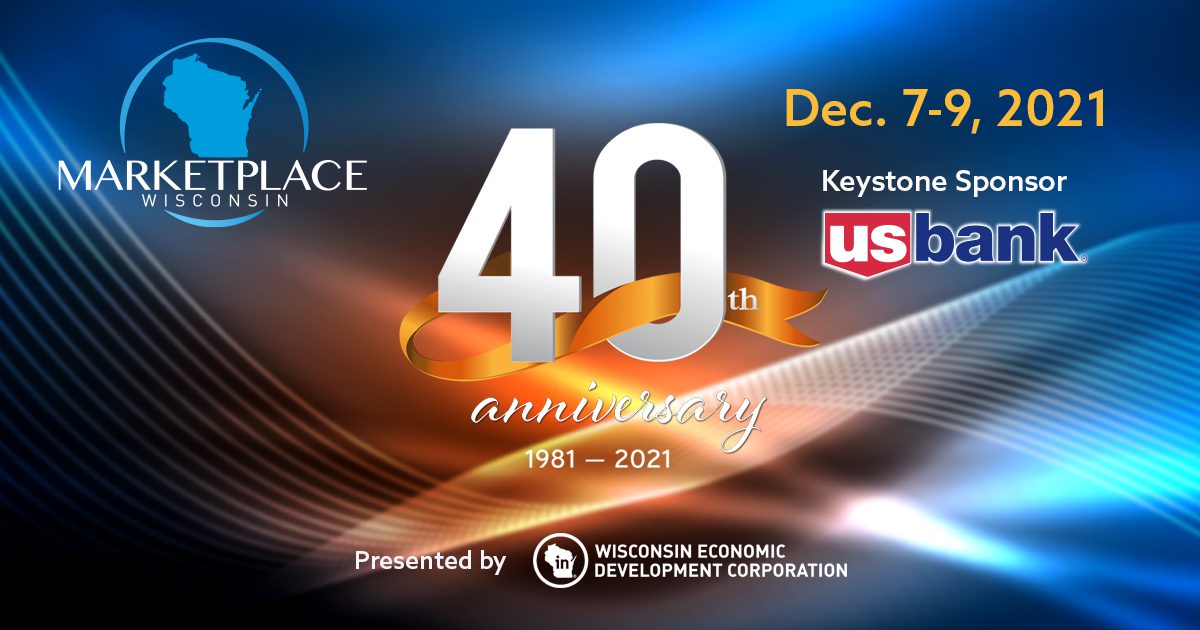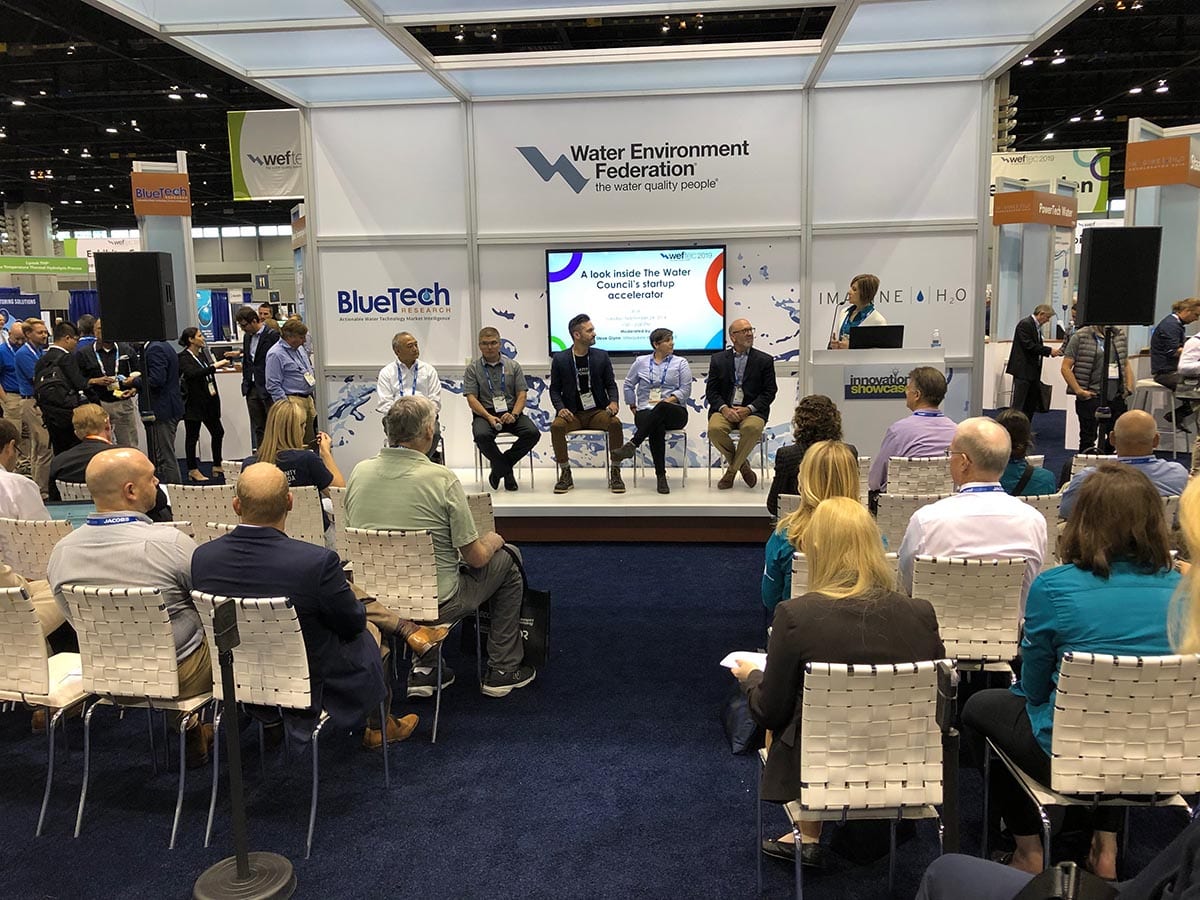Due to rapid urban development and widespread use of impervious materials that prevent soil from absorbing rainwater, China is dealing with serious flooding problems. To address this issue, the Chinese government in 2015 launched its “sponge city” initiative in 16 cities, with a goal of upgrading urban infrastructure to allow for better retention and drainage, as well as natural purification and filtration.

David Garman, associate vice chancellor for water technology, research and development of the University of Wisconsin-Milwaukee and chief technology officer of The Water Council, speaks at the China Sponge City International Exchange Conference in Beijing in August 2017.
Wisconsin’s water technology companies can play a role in this solution; the Wisconsin Economic Development Corporation (WEDC) and The Water Council are exploring that role and strengthening connections with the Chinese government, starting with a trip to China next month during which The Water Council and WEDC will be hosting conferences on water issues in two Chinese cities.
“One Water, One World: The U.S.-China Conference on Water and Sponge Cities” will take place on Nov. 27 in Nanjing and Nov. 30 in Beijing. The conferences were announced this week at the Water Environment Federation’s Annual Technical Exhibition and Conference (WEFTEC) in Chicago.
“This conference is another indication of the international reputation that Wisconsin has achieved in the water technology sector, thanks in large part to The Water Council and its many statewide partners,” said Mark R. Hogan, secretary and CEO of WEDC. “Helping China address some of its water challenges not only benefits that country’s citizens, but also presents new opportunities to some of the more than 200 Wisconsin-based companies currently in the water technology sector.”
The conferences, which are being held with support from the U.S. Commercial Service at the U.S. Embassy in Beijing, will feature panels of experts from Wisconsin talking about stormwater management and efficient water use. Kevin Shafer, executive director of the Milwaukee Metropolitan Sewerage District, will give a keynote address on the “one water” concept and how it could be implemented as part of China’s “sponge city” initiative.
In addition to Shafer and Amhaus, the event will also feature representatives from some of the state’s industry leaders: Rockwell Automation, Rexnord, A. O. Smith and InSinkErator. John Kissinger, president and CEO of GRAEF, a Milwaukee engineering firm, and Doug Buch, founder and president of PaveDrain, a Milwaukee company that makes permeable paving surfaces, also will speak at both conferences.
Ajita Rajendra, the chairman and CEO of A. O. Smith Corp., will make closing remarks at the Nov. 27 conference, while a representative of Rockwell Automation will do the same at the Nov. 30 conference.
The Chinese partners that will participate in the conferences include: the International Water Association; Sino-Singapore Nanjing Eco Hi-Tech Island; Jiangsu East High Group Hi-tech Industry Co. Ltd; the Beijing Water Authority; the Shanghai Municipal Commission of Housing and Urban-Rural Development and Management; the China Investment and Promotion Agency; and the Shanghai Foreign Investment Development Board.
Flooding of tunnels and transit stations means that heavy rain in China’s cities can sometimes become life-threatening. The sponge city initiative, launched in 2015 in 16 cities across China, seeks to reduce the intensity of rainwater runoff by enhancing and distributing absorption capacity. Because the resulting groundwater replenishment increases the availability of water for various uses, this approach not only reduces flooding but also enhances water supply security.
Examples of measures that support this approach include rooftops covered by plants, permeable pavements that store excess water runoff and allow evaporation for temperature moderation, the use of scenic wetlands for rainwater storage, the use of public spaces for water retention, and flushing systems that use collected rooftop water.
Wisconsin’s water sector companies are well positioned to provide these technologies to customers in China, and to work collaboratively with Chinese companies to develop their own solutions.
“We’re seeing that the water cluster is increasingly becoming an asset for companies outside the Wisconsin region,” said Dean Amhaus, president and CEO of The Water Council. “Through our established ecosystem of academic and research expertise, technological subject-matter experts and support at the regional and state level, we have a special opportunity to assist other countries on their endeavors toward developing ‘one-water’ cities.” (The “one water” approach takes an integrated view of drinking water, wastewater, industrial process water, and public waterways, rather than considering these constituents independently of one another.)
The November water conferences are the latest development in a growing collaboration between Wisconsin and China on water issues. In August, David Garman, associate vice chancellor for water technology, research and development of the University of Wisconsin-Milwaukee and chief technology officer of The Water Council, spoke at the China Sponge City International Exchange Conference in Beijing. And during a global trade venture to China in March, leaders from WEDC and The Water Council met with key government organizations that are responsible for the development of sponge cities. Those meetings provided Wisconsin officials with a better understanding of water ecosystem in China and how sponge cities are being developed, and laid the groundwork for the council and WEDC to jointly develop a strategy to help the country address its water challenges.
Visit the WEDC Events Blog for more coverage of news and announcements at WEFTEC 2017.






